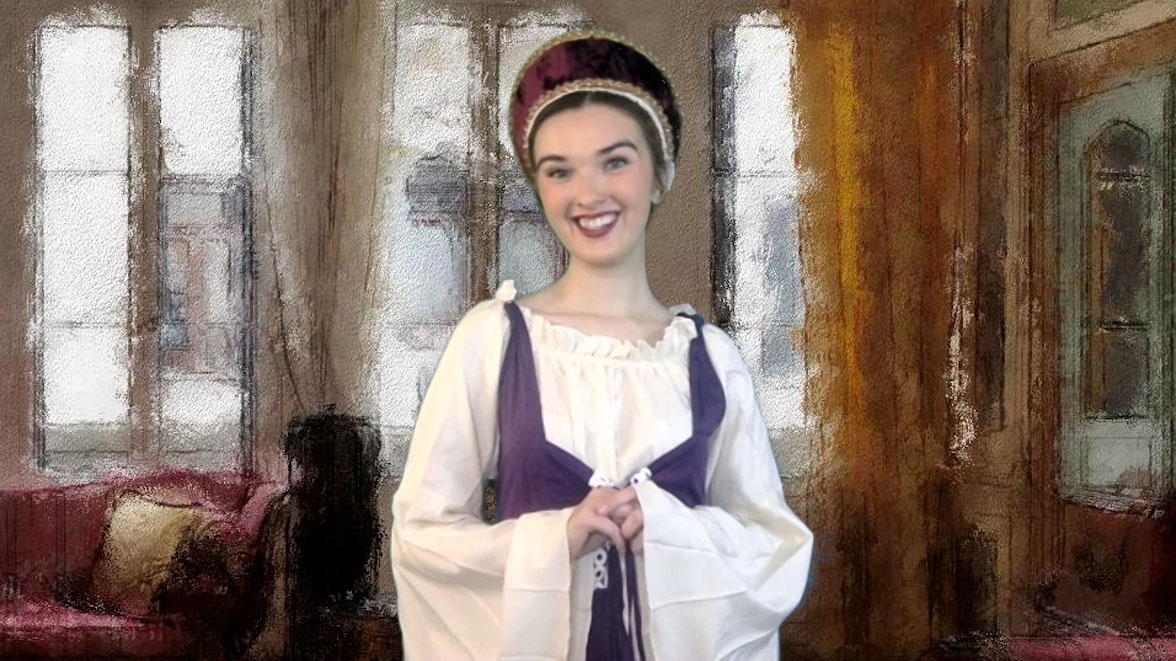 Aaron Pyle as Shylock – Photo courtesy of Ophelia’s Jump
Aaron Pyle as Shylock – Photo courtesy of Ophelia’s Jump A cartoon in a New Yorker magazine issue of the late 1930s showed Adolf Hitler pinning a Nazi medal on William Shakespeare for his perceived anti-Semitic slant in his play “The Merchant of Venice.”
In recent years, various directors and actors have tried to portray a more sympathetic and humane persona in Shylock, the Jewish money lender. Still, it is the rare Jewish theater goer who can avoid a certain discomfort or resentment at the portrayal of a Jew who mourns the loss of his daughter in the same tone as a financial setback and demands a pound of flesh from the body of a defaulting borrower.

Also annoyed was Carol Fisher Sorgenfrei, a professor emerita at the UCLA Theater Arts department, and she decided to do something about it. Drawing on her own dramatic skills, Sorgenfrei set about creating a counter play, in which the tormentors of the Jew are hoisted on their own petard.
Shakespeare wrote the play in the 16th century, when England was rife with anti-Semitic rumors, even though all Jews had been expelled from the country by royal decree two centuries earlier.
Nevertheless, in Shakespeare’s time the personal physician to Queen Elizabeth was a Portuguese Jew, who, it was rumored, was plotting to kill the monarch. Other widespread accusations feeding into the strong anti-Catholic feeling of the time, accused the Vatican of infiltrating spies masquerading as Jews, who were also plotting to restore the power of the Catholic church after the break of Henry VIII with the Vatican.
While Shakespeare was too astute a writer to turn Shylock into a Nazi-style caricature, Sorgenfrei objected to other aspects of “The Merchant of Venice.”
In her version, titled “A Wilderness of Monkeys,” Shylock and Jessica are a loving father and daughter duo and it would be most unlikely that she would convert to Christianity without compunction, Sorgenfrei noted.
Among Shakespeare’s other main characters, the Christian Lorenzo woos Jessica through his beautiful poetry, but once they are “married” she discovers that he is basically a casual seducer and that the wedding was a sham.
While Portia, disguised as a lawyer whose clever pleading saves Antonio’s neck (and the rest of his body), is generally considered the heroine of Shakespeare’s play, in Sorgenfrei’s interpretation, a less sympathetic Portia has clearly perverted the course of justice.
From this point on, Jessica and Shylock hatch a convoluted scheme to rectify the injustice.
Without spoiling all their tricks in advance, the new plot rests on the fact that a tulip craze pervaded England at the time, with tulip bulbs worth their weight in gold.
To advance the action of what Sorgenfrei describes as “a comedy sequel and reversal,” there is a lot of cross-dressing, with Jessica disguised as a Dutch tulip bulb seller.

In the final scene, in which the principals plead their cases at court, the Duchess, who has been following the action in various disguises, has a more sympathetic attitude than Shakespeare’s Duke toward Jessica’s side of the story.
As punishment, the Duchess reverses the first trial, finding Portia and Lorenzo guilty and Shylock innocent. She decrees that Antonio must drop his pants and he is outed as the despised Jew of Malta (Shylock’s literary forerunner).
Sorgenfrei’s professorial focus has been largely on the Japanese theater and among her works is the Japanese-Israeli fusion play “The Dybbuk/Between Two Worlds.”
Sorgenfrei acknowledges that her own Jewishness was a motivating factor in penning “A Wilderness of Monkeys.”
Shakespeare’s “Merchant of Venice,” in which Jews are forced to wear yellow stars, has all kinds of racist messages, which must be addressed, Sorgenfrei told the Journal. “For a while, I tried to ignore that, but at some point I decided I was not going to take it anymore. So I wrote a ‘Merchant of Venice’ in which everybody gets what he or she deserves.”
“A Wilderness of Monkeys” had its premiere last March, performed by the theater group “Ophelia’s Jump” in Claremont and Upland. The author expects that in the future, her play will be performed in other locales and before other audiences.























 More news and opinions than at a Shabbat dinner, right in your inbox.
More news and opinions than at a Shabbat dinner, right in your inbox.